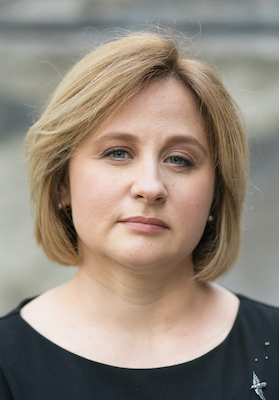Factual background
Double F Group LLC (franchisor) has concluded a franchise agreement with a private entrepreneur Mrs Mostova (franchisee). Under the franchise agreement, the franchisor has granted the franchisee a set of intellectual property rights, including the trademark “Cheese Kingdom”, for developing a cheese shop within the franchisor’s chain.
The franchise agreement has set out the following provisions, among others:
(i) royalties shall be paid monthly and shall be equal to 4% of the shop’s revenue for each month;
(ii) the franchisee shall not establish a similar competitive business;
(iii) the franchisor is allowed to terminate the agreement by sending a termination notice to the franchisee if, among others, the franchisee does not duly pay royalties and/or establishes competitive business. In the event of such termination notice, the franchisee is required to cease using the franchise, including trademarks and the entire franchise package, remove a sign from the store, change the store’s interior so that it stands out from other shops operating under the brand “Cheese Kingdom”, and pay all outstanding fees and royalties. To confirm the franchise agreement termination and return of the documents containing description of franchise, both parties must execute a reconciliation act.
After the franchise agreement conclusion in 2014 and until November 2019, the franchisee has duly performed under the agreement. Then the franchisee established the same competing business and, since 1 December 2019, has stopped paying royalties to the franchisor. Given the above, in December 2019, the franchisor sent a termination notice to the franchisee, but the latter has not answered. In February and March 2020, the franchisor sent additional requests to the franchisee to pay outstanding royalties, terminate usage of the franchise package and execute a reconciliation act. However, again the franchisee has not answered the requests.
In the end, the franchisor referred the dispute to the Ukrainian courts.
Decisions of the Ukrainian courts
The case was considered by the first instance court[1] and the appeal court[2]. Both courts have obliged the franchisee (a) to return the franchise package, (b) to terminate usage of the franchise package, trademarks, signs etc., and (c) to execute the reconciliation act. At the same time, the first instance court and the appeal court have different positions in respect of payment by the franchisee of royalties for the period when the franchisee has not sold the franchisor’s products, and thus, the franchisee’s store has not earned any revenue.
Both courts have agreed with the franchisor that the franchise agreement shall be considered terminated only after the execution of the reconciliation act by both parties. The franchisor has requested the franchisee to execute such an act several times, but the franchisee has just ignored them. Both courts have not agreed with the franchisee’s position that since there were no trade operations between the franchisor and the franchisee, there is no need to execute the act of reconciliation. Hence, both courts have ruled that the franchise agreement was effective.
As for royalties, both courts revealed that from December 2019 until June 2020, the franchisee has not ordered and bought products from the franchisor. Therefore, the franchisor did not have actual data to calculate royalties under the franchise agreement. Instead, the franchisor has calculated royalties based on the average data for 11 months of 2019 when the franchisee has duly cooperated with the franchisor. The franchisor has used such an approach, referring to the ruling of the Plenum of the Higher Commercial Court of Ukraine, under which if a license agreement sets out payment royalties for using the relevant IP rights, it is impossible to reject the licensor’s requests for payment such royalties referring to non-usage of the IP rights by the licensee (if the agreement is effective). If the parties have agreed upon royalties in the form of a certain percentage of the revenue, in the absence of use amounts, royalties shall be calculated based on comparable circumstances of the lawful use of the IP rights.
The first instance court confirmed the franchisor’s calculations and obliged the franchisee to pay royalties for the whole period of the franchise agreement validity, e.g. December 2019 – June 2020. However, the appeal court has ruled differently. The appeal court has ruled that the above position of the Plenum of the Higher Commercial Court of Ukraine relates to license agreements only that are different from franchise agreements. Taking into account that (a) the franchise agreement does not set out the royalties calculation based on the last periods, (b) the franchise agreement does not stipulate precisely payment of royalties in case of the absence of commercial activities in the shop, (c) the franchisor has not provided evidence of the products sale to the franchisee for further resale to the end customers, the appeal court has refused the franchisor’s claims in part of royalties for December 2019 and June 2020 and has not obliged the franchisee to pay them even though the franchisee has used the franchise during the said period, and both courts have confirmed this fact.
[1] In Ukrainian – https://reyestr.court.gov.ua/Review/91720583
[2] In Ukrainian – https://reyestr.court.gov.ua/Review/93464582
Anzhela Makhinova, IDI Country Expert for Ukraine
